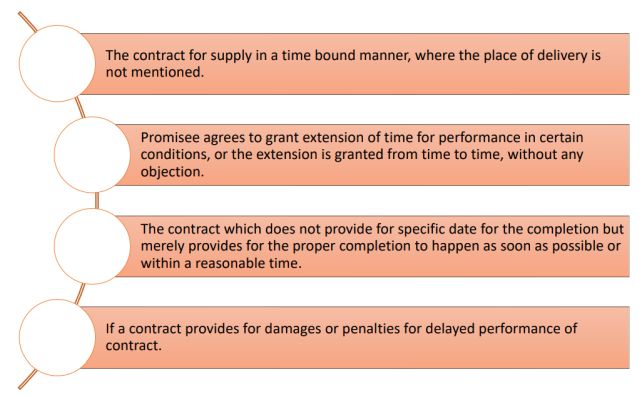INTRODUCTION
In today's fast-growing economy, contracts play a very vital role. Parties enter into contracts for varied purposes and generally a specific time of performance is desirable in all cases. However, whether time of performance of the contractual obligation is the essence of the contract should be determined by the parties to the agreement at the time of execution of a proper contract and thereafter act strictly as per the terms of the contract.
If parties desire that time is material then the expression "Time is of Essence" is very important. This expression denotes that time is material while executing the contract and any delay would attract serious consequences including termination at the option of the party suffering from such delay. Further, in case of breach of this material condition of the contract, it will entitle the innocent party to consider this breach as a repudiation of the contract.
LEGAL PROVISIONS
In India, Sec. 55 of Indian Contract Act, 1872 ("Act") deals with the "Effect of failure to perform at fixed time, in contract in which time is essential" and provides that if time is the essence of a contract, then if the contract is not performed at or before the specified time, the promisee has the right to avoid the contract. However, in case the delayed performance is accepted without any objection then this right is lost.
In the contracts where "time is the essence of the contract" is not the intention of the parties to the contract, then such contract does not become voidable if the contract is not performed or partly not performed at or before the stipulated time. However, the promisee is entitled to compensation from the promisor for any loss occasioned to him by such failure.
INTENTION OF THE PARTIES
For determining whether time is the essence of contract or not, intention of the parties plays a vital role. Intention to consider time as essence of the contract, should be in writing and must be in an unambiguous language. The mere fact that a certain time is specified in a contract for the performance of promise by the promisor, cannot be considered as substantiating with the statement "Time is the essence of the contract".
Let us examine one illustration to understand this provision in practical sense.
Illustration: A enters into a contract with B for supplying food at a function which B has hosted on particular day and particular time. Under the terms of the contract, A agrees to supply food at such particular time and on such particular day. Thus, as per the terms of the contract time is of essence. If there is a failure on the part of A (the promisor) to perform his obligation within the fixed time on the particular day, the contract (or so much of it as has not been performed) becomes voidable at the option of B (the promisee). However, the intention and the conduct of the parties is important and should be noted.
Scenario 1: If B accepts the supply of food after the fixed time without any objection, B cannot claim compensation for any loss occasioned by A due to the non-performance of the promise at the agreed time.
Scenario 2: If B at the time of accepting the delayed performance or accepting the late delivery of the food, gives a notice to A of his intention to claim compensation, then B has complete right to claim the compensation for any loss occasioned due to the nonperformance of the promise made by A.
The above Illustration makes it clear that the intention and conduct of the Parties is very important to determine whether time is of the essence in such contract.
EXCEPTIONS
It should be noted that merely adding a clause to state that time is of essence, may not suffice and the clause may become ineffective due to certain actions of the promisee or some other inconsistent provisions of the contract, like:

To view the full article, click here.
The content of this article is intended to provide a general guide to the subject matter. Specialist advice should be sought about your specific circumstances.
